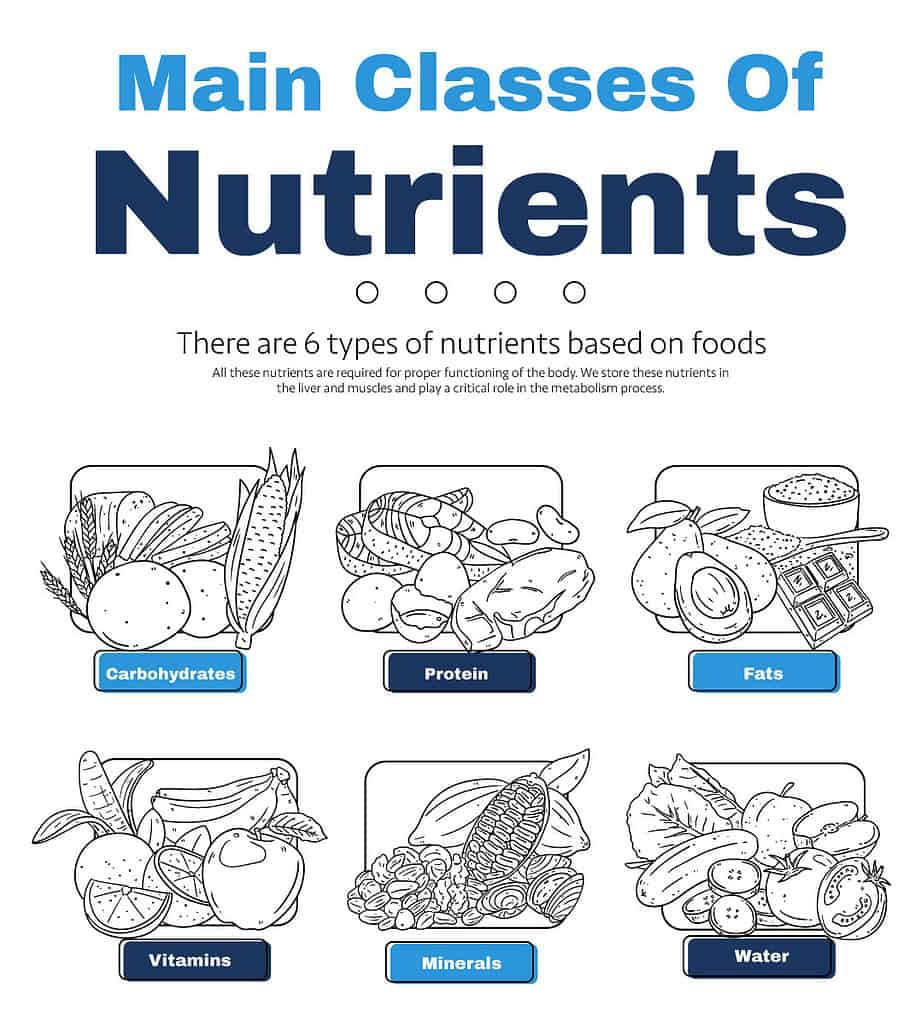Hey there, high-achiever! 🌟 You’ve scaled mountains in your career, aced your personal goals, and you’re the go-to problem solver among your friends. But when it comes to flexing those muscles—literally—you find yourself a bit, well, deflated. Sound familiar?
Don’t sweat it; you’re not alone. Many people excel in various aspects of life but hit a wall when it comes to physical fitness. And let’s get one thing straight: those muscles aren’t going to grow themselves. Even if your exercise program is flawless, if your nutrition is subpar, you’re attempting to construct a skyscraper on a foundation built of sand. It’s hardly the best plan, is it?
This article fills that need. We’re delving into the area of nutrition to provide you with practical, fact-based advice on how to support the growth of your muscles. No more speculation or passing trends; just sound guidance you can start using right away.
So let’s get started, grab a protein shake (or a glass of water if you’re still working that part out).
Introduction to Muscle Growth

The Mechanism of Muscle Growth
Without having a rudimentary understanding of architecture, you wouldn’t build a house, right? The same is true of muscle development. Making better decisions and avoiding frequent mistakes can be made easier by understanding the science behind it. So let’s dissect it.
How Muscles Develop
Muscular protein synthesis is the word for the procedure that causes muscular hypertrophy. Your muscle fibers are actually being somewhat torn apart while you exercise. Do not be concerned; this is beneficial! Protein is then used by your body to fill in these gaps when it enters into repair mode. The outcome? larger, stronger muscles.
Nutrition's Function
You may now be thinking, “Okay, so I just need to work out a lot, right?” Wait a minute. The other side of the equation is exercise. How well your body can repair and build muscle depends critically on nutrition. Consider it as the type of materials you would use to construct that house. If you had access to bricks, you wouldn’t use cardboard, would you?
The sorts of nutrients your body needs for optimum muscle building, when to eat them, and how to prevent common mistakes that could impede your progress will all be covered in the subsequent sections.
Are you therefore prepared to design your own body? Together, let’s create something incredible.
Macronutrients: The Foundation
“You are what you eat,” you’ve heard of it, right? Well, this couldn’t be more true in terms of muscle growth. To create those muscles, your body requires the proper building blocks, which are macronutrients like protein, carbs, and fats. Let’s dissect it.
Protein: The Muscle's Best Friend
Protein would be the best friend of muscles. The necessary amino acids that your body requires for growth and repair are found in protein. Choose lean meats such as chicken, turkey, fish, and plant-based alternatives like lentils and chickpeas. Depending on your level of exercise, a decent general guideline is to ingest between 1.2 and 2.2 grams of protein per kilogram of body weight.
Carbohydrates: The Source of Energy
Don’t let your fear of carbohydrates deter you. For energy, carbohydrates are crucial, especially during strenuous exercise. Excellent sources include fruits, whole grains, and veggies. They aid in healing and give you the energy you need to get through your workouts.
The Unsung Hero: Fats
Although they frequently receive a poor rap, fats are crucial for the generation of hormones and general wellness. Choose healthy fats like those found in avocados, almonds, and olive oil. Just keep in mind that fats are high in calories, so moderation is crucial.

We’ll discuss when to ingest these macronutrients to get the most health benefits in the following section. Consider your food as a balanced plate for the time being, with a big portion of protein, some side carbs, and a drizzle of good fats. Good appetite!

How to Time Your Meals
Now that you know what your macronutrient needs are, when should you actually eat them? When it comes to refueling your muscles, timing is important. Let’s get down to business.
Pre-Workout: The Beginning Package
Consider your pre-workout food as your muscles’ warm-up. Giving them just enough energy to perform is ideal, but not enough to make you feel lethargic. Aim for a protein- and carbohydrate-rich supper roughly one to two hours before doing out. It may be as simple as a chicken sandwich or a protein smoothie with fruit.
Post-Workout: The Recovery Kit
Once you’ve crushed your workout, it’s time for recovery. Your muscles are like sponges at this point, ready to soak up nutrients. Within 30 minutes to an hour post-workout, aim for a meal rich in protein to kickstart muscle repair and carbs to replenish energy stores. A classic option is a protein shake with a banana or some oatmeal.
Throughout the Day: Keep the Engine Running
Don’t just focus on pre and post-workout meals; your body needs consistent fuel throughout the day. Aim for balanced meals and snacks that include all three macronutrients. This will keep your metabolism humming and provide a steady stream of nutrients for muscle growth.
Timing is more than just a catchy Justin Timberlake song; it’s a crucial element in your muscle-building journey. So set those reminders and get ready to eat your way to a stronger you!
Supplements: The Good, The Bad, and The Ugly
Let’s talk supplements. Walk into any health store, and you’ll be bombarded with bottles and powders promising instant gains and superhuman strength. But let’s cut through the noise and get real for a moment.
The Good: Protein Powders and Creatine
Protein powders can be a convenient way to hit your daily protein goals, especially if you’re on the go. Whey, casein, and plant-based options like pea or hemp protein are all solid choices. Creatine, another popular supplement, has been shown to improve performance and muscle growth when combined with resistance training.
The Bad: Testosterone Boosters and Weight Loss Pills
Despite the hype, there’s little scientific evidence to support the effectiveness of testosterone boosters for muscle growth. And don’t even get us started on weight loss pills; they’re often packed with stimulants and can do more harm than good.
The Ugly: The Unregulated Market
Here’s the kicker: the supplement industry is largely unregulated. That means you could be ingesting substances that aren’t listed on the label. Always opt for reputable brands and consult with a healthcare provider before starting any new supplement regimen.
Remember, supplements are just that—a supplement to your diet. They’re not a magic bullet. Your primary source of nutrients should always come from whole, unprocessed foods.
Timing is more than just a catchy Justin Timberlake song; it’s a crucial element in your muscle-building journey. So set those reminders and get ready to eat your way to a stronger you!


Hydration: More Than Just Water
You’ve got your macronutrients and supplements lined up, but let’s not forget about the unsung hero of muscle growth: hydration. It’s not just about chugging water; there’s a bit more to it.
The Importance of H2O
Water is essential for pretty much every function in your body, including muscle repair and growth. Dehydration can lead to muscle fatigue, cramps, and poor performance. Aim for at least 8 cups of water a day, more if you’re sweating buckets at the gym.
Electrolytes: The Balancing Act
Ever heard of electrolytes? These are minerals like sodium, potassium, and magnesium that help balance the fluids in and out of your cells. They’re especially important during and after intense workouts. Consider adding an electrolyte tablet to your water or sipping on a sports drink to keep things in equilibrium.
Caffeine: A Double-Edged Sword
While a cup of coffee before your workout can give you a nice energy boost, too much caffeine can lead to dehydration. Keep it moderate and make sure you’re compensating with extra water if you’re a coffee aficionado.
So the next time you’re reaching for a protein shake, don’t forget to chase it down with some high-quality H2O and maybe a sprinkle of electrolytes. Your muscles will thank you.
Common Mistakes and How to Avoid Them
You’re armed with all this knowledge, but even the best of us can stumble. Here are some common nutrition mistakes people make when aiming for muscle growth, and how you can sidestep them like a pro.
Overcomplicating Things
You don’t need a Ph.D. in nutrition to build muscle. Stick to the basics: balanced meals, proper timing, and adequate hydration. Don’t get lost in the weeds with fad diets or overly complex meal plans.
Skipping Meals
Consistency is key. Skipping meals can throw off your metabolism and hinder muscle growth. If you’re in a rush, opt for a quick protein shake or a handful of nuts to keep the engine running.
Overdoing Supplements
Supplements can be helpful, but they’re not a substitute for real food. Plus, overdoing it on things like protein powder can lead to digestive issues. Balance is the name of the game.
Ignoring Micronutrients
While macronutrients get all the glory, don’t forget about micronutrients like vitamins and minerals. They play a crucial role in overall health and can support muscle function. Incorporate a variety of fruits and vegetables into your diet to cover your bases.
Mistakes are part of the journey, but they don’t have to derail your progress. Keep these tips in mind, and you’ll be well on your way to becoming a muscle-building maestro.
Actionable Steps and Takeaways
You’ve got the knowledge; now it’s time to put it into action. Here’s a quick recap and some actionable steps to get you started:
- Prioritize Protein: Aim for 1.2 to 2.2 grams per kilogram of body weight.
- Don't Fear Carbs: Choose whole grains, fruits, and veggies for sustained energy.
- Balance Fats: Opt for healthy sources like avocados and nuts.
- Supplement Wisely: Stick to reputable brands and consult a healthcare provider.
- Stay Hydrated: Aim for at least 8 cups of water a day, more if you're active.
- Avoid Common Pitfalls: Keep it simple and consistent.
Conclusion
Building muscle is more than just lifting weights; it’s a holistic approach that involves proper nutrition, timing, and a dash of common sense. You’ve got the blueprint; now it’s time to start building. So go ahead, flex those muscles and show the world what you’re made of!
Additional Resources
For more personalized guidance, consider hiring a certified nutritionist or, better yet, a life coach who specializes in holistic wellness (wink, wink). Check out these books and apps for further reading and meal planning:
- “The Muscle and Strength Nutrition Pyramid” by Eric Helms
- MacroFactor App for tracking macros
- Book a Free Consultation with me to get any of your questions answered.








